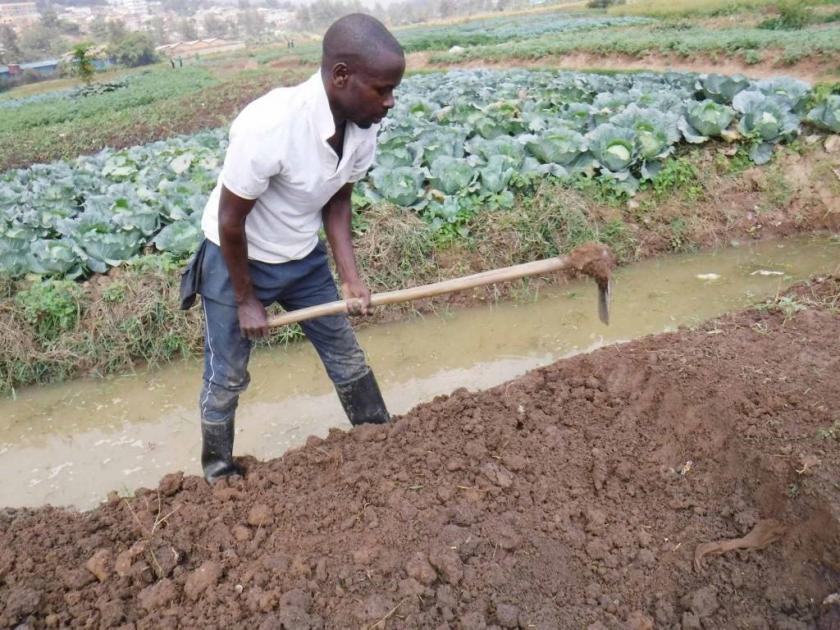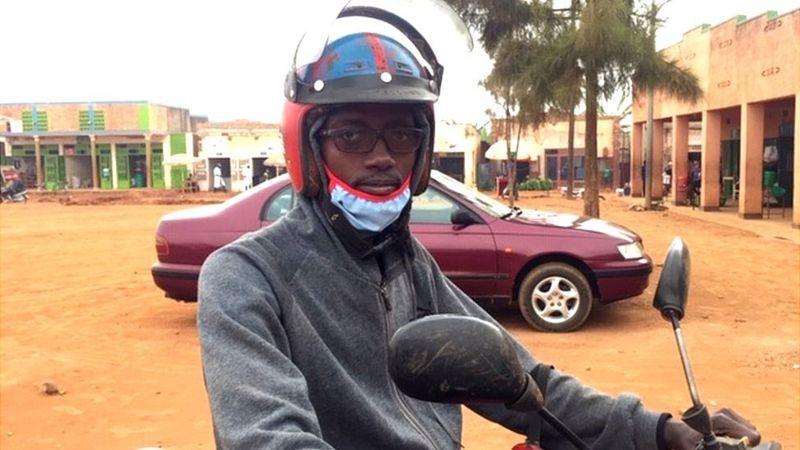
For Teachers: When COVID-19 Struck, the Job and Salary Disappeared
Schools are unlikely to fully open anytime soon since they were closed on March 12, two days before the first COVID-19 case was announced in Rwanda. At least 14% of the 78,108 total teachers for secondary school level and below, were employed by private schools.
While their counterparts employed by government have been getting their monthly paycheck, the private schools simply closed shop. School owners refused loans despite banks willing to offer. There have been calls pleading with government to force private schools to take Umwarimu SACCO Iramiro loan to finance teacher upkeep.
Government had some intervention in May, pushing school proprietors to take advantage of the Umwarimu SACCO cash. However, data shows only 24 schools out of more than 1,100 private schools have applied for this loan.
With this dare state of uncertainty, The Chronicles writer Celestin Ndereyehe, went out to look for those teachers. Their stories are enterprising, inspirational and very painful to listen to, all in equal measure!
Zakayo John, 28, Kagugu Nursery and Primary School, Kigali
“My monthly salary was Rwf 100,000. The school paid us up to May and stopped without warning. I thought of an idea of going into farming. I borrowed Rwf 30,000 to rent a 10m-by-6m piece of land to grow vegetables. Today, I earn Rwf 5,000 per week, which is hardly enough to live on and cover house rent. We have no one to plead to for help. I feel I have been let down by my government and the school.”

“The life since the day schools closed has been tough. Today I start my day at 5am and have to spend all day waiting for people I’m not sure will come.”
“I was teaching at a school in Tumba sector, paid Rwf 65,000 monthly. Of course the salary stopped with February. We thought schools would open after a month or two. In mid-May, life was getting worse, so I withdrew Rwf 50,000 from my account and opted into selling vegetables, mainly ‘Dodo’ greens around Mbuye market.”
“Today, I sell different kinds of fruits and vegetables which I buy from Karambi wetland (10km away) three times a week. I purchase 8 bags at Rwf 7,000 each and earn around Rwf 2,500 profit from each of them. It sounds like a lot of money, but it involves hard labour, not like teaching. Since vegetables are perishable, I lose them very often. Making losses is a normal part of life which shocked me at first, but somehow I have accepted it.”
Kinyinya-Kigali: Baragira Jean Claude, headteacher of a primary school he asked us not to name
“I hold a bachelor’s degree in education from Kyambogo University in Uganda. My salary was Rwf 200,000, but it was last paid in February, before the lockdowns began in Rwanda. The school owner actually stopped communicating in May.”
“When I began getting to terms with fact that I could be unemployed for a very long time, I went to a brick-maker nearby for a job but later seriously injured my leg. It is extreme menial work. I decided to start home pupil coaching in June, whereby I had 5 school children each paying Rwf 10,000 per month. Today, only 2 children are remaining. The other parents just took their children saying they are not sure schools will ever open so cannot afford to pay coaching for long.”
“If nothing changes, I will not be able to feed my wife and child. The situation is getting worse. There is a workable solution if government wants to; it can find a way to encourage private schools to pay us, even if it is 30% or 20%.”
Hakizimana Innocent, University of Rwanda graduate vending eggs in Burera district
“I was teaching at a private school in Musanze district. My only option was to return to my village in Burera district with my wife and child. We got food from other relatives, and soon they stopped. I had not touched a farming hoe for more than 10 years, so tilling was not an option. Using a small amount of Rwf 25,000 I had acquired, I started a business vending eggs.”
“I move from home to home buying eggs at Rwf 80, which are in turn sold for between Rwf 85 or Rwf 90. In a week, I make a profit of about Rwf 4,000. However, the biggest challenge is the distance I have to walk daily, sometimes for as much as 7hours everyday. In addition, my biggest market is in Gakenke district, where I have to travel to every Wednesday and Saturday – which is a distance of 19km, taking me about 4 hours. Of course there are Motos riding along the route, but I cannot afford. So have to carry my eggs all the way, despite the risk of losing them all.”
Bayisenge Evelyne, back to the village
“For a year until the virus changed my life completely, I was teaching at Kagugu Nursery and Primary School, earning Rwf 60,000. The pay also stopped with the school’s closure. I relocated to my village with my child after a few days later in Shyongwe sector, Muhanga district.
“I work with my parents in their gardens. Their health has been a problem, even before the virus came. Going into business is not possible as it needs capital, which I don’t have at the moment.”
“I was teaching at Itetero Complex Christian School in Ngoma district, earning Rwf 70,000 monthly. Suddenly, government ordered all children to go back home and the lockdown began. Without pay, I thought of idea of supplying firewood around Ngoma. Using our family savings of Rwf 500,000, I took the risk; supplying places like brick-makers.”
“The new job was a shock for me. It had no correlation at all with teaching. It was a completely new life. I have sometimes paid money for firewood and got nothing back. Losses are a way of life. But what option do I have? Nothing. I have to keep working, otherwise we will starve at home.”
Kabemba Jean Pierre, a Congolese with nowhere to go
“I was teaching French at Ange Gardien located in Nyarugenge district (Kigali) and Hill Max School in Bugesera District, earning Rwf 100,000 from each school. All that just stopped on the day schools were closed. Since paying rent wasn’t possible, I moved into a friend’s home, but had to leave in May because they were also struggling.”
“From time schools closed, I have been seeking jobs at construction sites. Managers always tell you; ‘we have no work today’. So I have to move constantly, which earns me Rwf 2,000 for a day’s work when luck comes. I cannot afford rent, so I share single room with other friends. My meal daily is Ubugari (cassava dough) and beans as it is what is affordable. Getting another type of food is very rare.”
“If schools don’t open soon, I really don’t know what life will be. I have nowhere else to go or anyone to turn to”.
Baluku Boaz, from office to weaving carpets
“I’m married with two children. When the virus struck, I was Headmaster at Safe Hills Academy in Kigali, paid Rwf 150,000 monthly. My last salary was for February.
“With the lockdown in place and unemployed, I began helping my wife with her carpets weaving business. Imagine working in an education environment for 9 years, and suddenly have to do something else you never did before. We produce one carpet every week after investing Rwf 20,000 in buying materials like threads, and make a profit of Rwf 10,000 from it. The income is very small considering the needs.”
“There are other realities of this business. We make losses very often. Like right now, we have more than 15 carpets with no buyers.”
Dusengimana Innocent, Musanze district
“My monthly salary was Rwf 200,000 as languages trainer at Muhabura Integrated Polytechnic College (MIPC). The last pay came on March 2, which was for February. From the day schools closed, the Principal stopped all contact until July when he informed us that payment will only resume once schools reopen.”
“As a father and husband, I have to find a way to feed my child. Some days I get day jobs at construction sites but that daily wage is a drop in an ocean of needs. Sometimes, I return home embarrassed when my child pulls at my trousers expecting something.”
“I have been constantly visiting the district education recruitment center. Maybe luck will come my way some day to be hired in a government school.”
Kamonyi district: Umuhire Olivier, the former headteacher is Moto rider

“Together with my wife, we are both teachers. I was working in a public secondary school, while my wife was in a private school. When government said schools will open in September, I decided to make use of the motorcycle at home. I had to find extra income because now I was the sole breadwinner.”
“Usually when a Moto rider doesn’t own the motorcycle, they have to make daily deposit for the boss of Rwf 3,000. For me, I instead save that amount on my account. People demean this type of job, saying all sorts of things. But it brings a fair amount of money. However, the risk involved is big, especially accidents.”
Teacher tries YouTube lessons, but…
In Rubavu district, Obed Uwayezu a science teacher at GS Ramba, runs a YouTube channel ‘Elearning Obed‘where he posts lessons. He began the class project, but also posts video of other teachers. The scheme has yet to be adopted widely as students need various other things like internet, laptops or smartphones – which are luxuries in most of Rwanda. Besides, the teachers do not earn any money from the project.
In rural areas, a significant number of people who relocated there recently are teachers who could no longer manage life in the cities. According to proprietors of private schools who spoke to us, the government has been keen to support teachers of private schools.
However, government wants the proprietors to acquire loans from SACCO as an institution and use that money to support their teachers. It is this scheme the school owners have vehemently declined to do. Instead, they have been calling on government to either pick up the burden of the teachers or the teachers are allowed to obtain loans from SACCO but in their own names.
“We cannot put our schools at risk by getting the loan for all teachers who are currently unproductive. Beside, they work under different contracts,” said Patrick Gatungo, director of finance at Authentic International Academy located in Kicukiro District, Kigali.
“You also need to know that in the teaching profession, teachers are always changing schools depending on how much you offer them. So supposing I get that SACCO loan and the teacher leaves. That means the burden will revert to the private school.”
